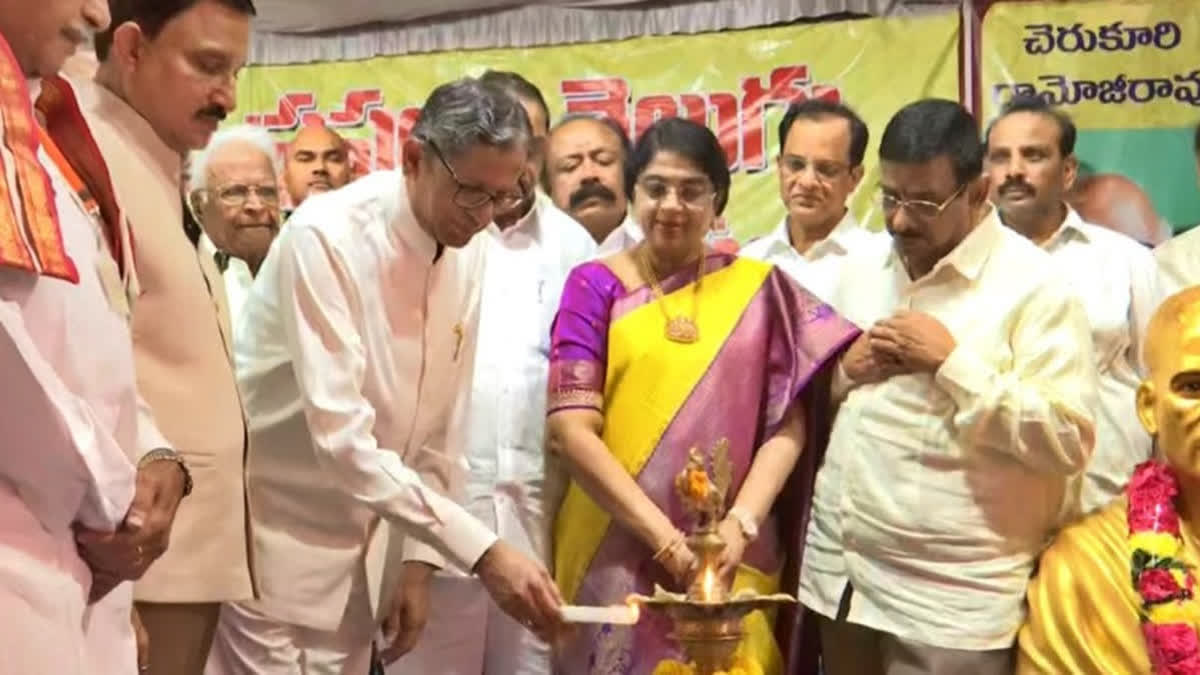Amaravati: Non-State Telugus have raised concerns over the decline population of Telugu people settled in Tamil Nadu, Karnataka, Maharashtra, Odisha and other states.
They pointed out discrepancies in the census data and questioned how only 5.6% of people in each district of Tamil Nadu are listed as Telugu, when the actual percentage is estimated to be around 30%. They lamented the deteriorating situation in areas where Telugu was once a prominent language.
In response, representatives from the State Non-Andhra Federation have announced plans to work with Telugu associations in various states to create a unified syllabus for teaching Telugu to future generations and organize online classes. The discussions took place during the 6th World Telugu Writers' Congress, where a special session, chaired by Rallepalli Sundara Rai, President of State Non-Andhra Union, was held for Telugu representatives from other states.
Gradual disappearance of Telugu identity- R Sundarao, Kharagpur
Telugu people, settled in other states for centuries, are gradually losing their identity. Sundarao noted that several Telugu names are being altered over time, such as Sundararao becoming Sundararaman and Radhakrishna becoming Radhakrishnan. R Sundarrao said historically, Telugu people in West Bengal exclusively studied in Telugu medium until around 30 years ago. Many schools were founded and managed by Telugu families, But with the rising preference for English education, children are now largely excluded from Telugu-medium schools. As a result, several Telugu schools have shut down. However, Telugu continues to be taught as a subject up to class XII, though the overall situation remains concerning.
Challenges Faced by Telugu People in Tamil Nadu - Sitaramaiah, Krishnappa, Hosur
In Tamil Nadu, where a significant Telugu-speaking population resides, activists are going door-to-door to advocate for the preservation of Telugu language. They reported that the state government is undermining minority languages, particularly by imposing Tamil as a compulsory subject. While there has been a lack of Telugu textbooks and while Telugu remains part of the syllabus, there is no formal marking for the subject. Teachers are reportedly demotivating Telugu students and schools have been informally instructed not to order Telugu books, further exacerbating the situation.
Telugu Culture in Gujarat - PVPC Prasad, Ahmedabad
